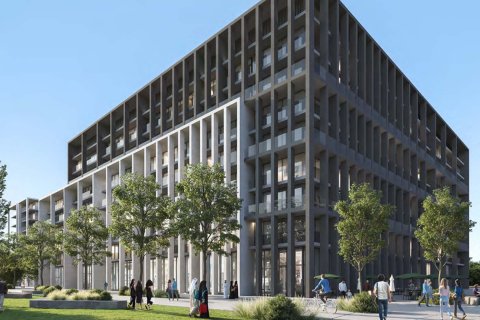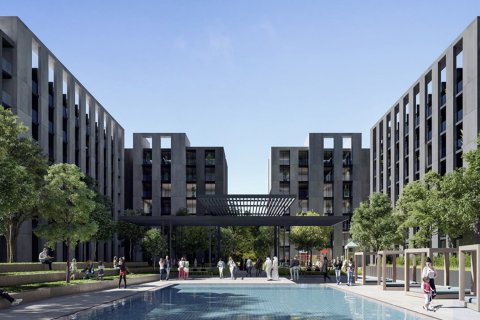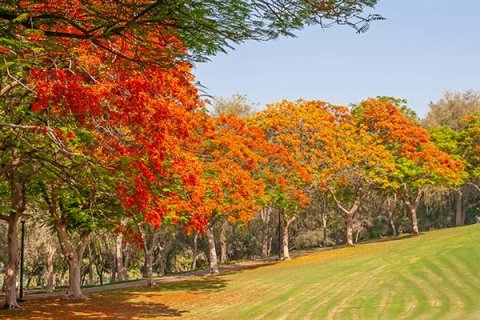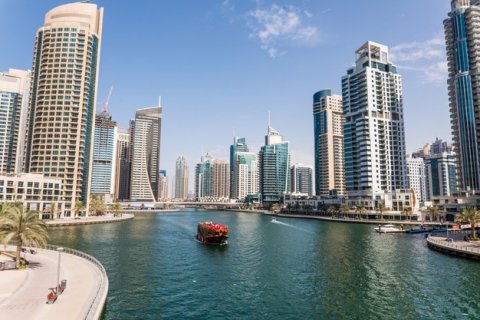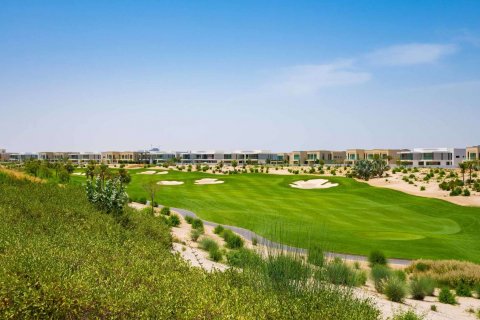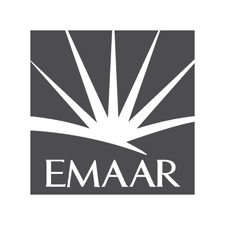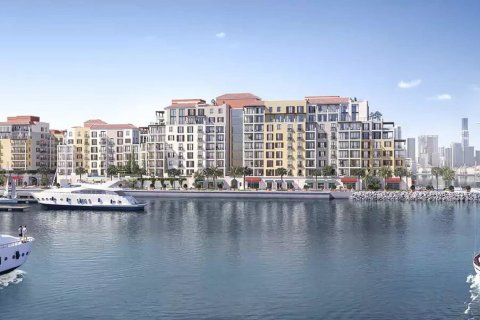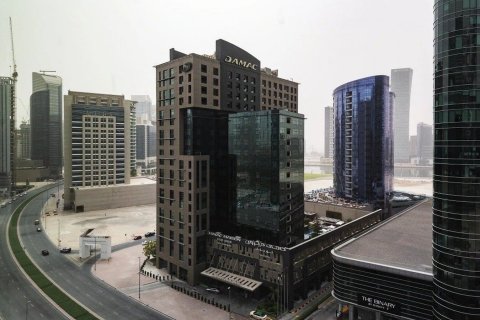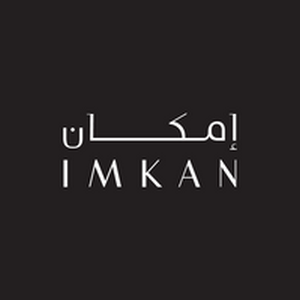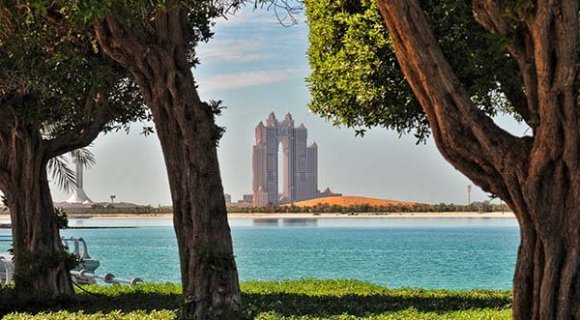
In the first half of 2024, the real estate market in the United Arab Emirates continues to show steady growth, underscoring its stability. Dubai remains a key driver of this expansion, offering investors a wide range of unique opportunities. At the same time, interest in other emirates has significantly increased. This is largely due to alternative cities providing similarly affordable and diverse housing options, making them attractive to various buyer segments. Given these changes, it’s particularly relevant to explore the most sought-after investment destinations in the country.
With such a variety of offerings, potential investors can find suitable options that align with their financial capabilities and preferences. Therefore, analyzing current market trends will provide a deeper understanding of which regions could become the next investment hotspots and how this will impact the overall market in the coming years. Examining these factors will help investors make more informed decisions, taking into account shifts in supply and demand.
In this article, we will delve into the key aspects of the UAE real estate market. We will discuss its growth prospects, Dubai's achievements, including new records and rising demand for luxury properties. We’ll also address rising rental rates, the shortage of commercial spaces, and the interest in secondary housing in Abu Dhabi. Additionally, we will highlight the new resort in Ras Al Khaimah and the market growth in Sharjah due to freehold zones.
Content
Prospects for the UAE market
Experts at the German company Statista forecast that the Emirati property market will reach USD 710bn by the end of the year, with USD 410bn allocated for housing. An annual growth of 3.03% is expected from 2024 to 2028, which will push the market volume up to USD 800bn.
Statista also notes a rapid increase in the demand for luxury projects in the Emirates, driven by wealthy foreigners interested in profitable investments.
Dubai: New records
The year 2023 set a record for the Dubai property market in terms of both the number of transactions and volume. Many analysts anticipated a downturn at the beginning of the year that would lead to a price adjustment. However, their predictions did not come to pass, as growth continued unabated throughout all six months.
DXB Interact, an analytical portal, reports a total of 79,767 transactions were concluded in Dubai in the H1 of 2024, representing a 30.4% increase compared to the same period last year. The value of these transactions reached AED 232.6bn (USD 63.33bn), up 29.7% from last year's figures. The average price per square metre from April to June was AED 16,318 (USD 4,443), making a quarterly record for the last decade.
Experts' forecasts for the coming years vary. Some believe that the city will experience a minor price adjustment followed by a fourth cycle of growth. Others suggest that the emirate has moved beyond the cyclical system, so a downturn is not anticipated. Some expect a decline in value from 2026 to 2027 when the number of offers in the market is anticipated to increase due to the completion of new projects.
Jasko Miletic, CEO, owner and co-founder of Dubai Rapid Properties (DRP), believes that Dubai’s property prices still have growth potential. He points out that global crises, including military conflicts, could contribute to this potential. The emirate remains a haven, attracting foreign property buyers and stimulating the market.
Demand for luxury properties
Dubai's luxury property segment continues to grow rapidly. In the first two quarters of 2024, 190 transactions were completed for properties priced from AED 36.73 million (USD 10 million) or more. Their cumulative price amounted to AED 11.75bn (USD 3.2bn). Analysts note that, in most cases, elite housing is purchased by wealthy buyers for personal use.
It’s also worth noting the rise of branded projects, developed in collaboration with hotel chains, fashion houses and car manufacturing. With an influx of wealthy buyers, such projects are expected to remain in high demand. Their undeniable advantages include prestige, brand recognition, exclusive amenities and services, as well as design and luxury finishes. The average cost per square metre for these properties reaches AED 70,000 (USD 19,000).
Rents are rising
The rental value of properties is also rising. The consulting corporation Deloitte reports that by the end of last year, the average rental rate was AED 990 (USD 270) per square metre. A special calculator developed by the Real Estate Regulatory Authority (RERA) indicates how much landlords can increase the rent for a specific property. In some cases, this calculation allows for rate increases of up to 20% a year.
Some tenants have been compelled to give up housing in the central part of the city, with many relocating to peripheral areas with lower rents. As a result, the demand for housing in communities such as Damac Hills II and Dubai South has increased.
Some experts anticipate that rental values will stabilise by the summer of 2025 when 37,000 new units are expected to come on the market.
Jasko Miletik notes that currently, the majority of transactions in the Dubai market involve off-plan projects. As under-construction real estate cannot be rented out immediately after the transaction, the rental supply is lower than the demand. Therefore, a decline in rental prices in the short term is unlikely. By the end of this year, prices are expected to either remain at their current level or rise further. More accurate forecasts can be made at the end of August, with the influx of many foreigners into the city.
Commercial property shortage
The commercial property sector is experiencing an acute shortage of space. In Q1 2024, the occupancy rate for office properties stood at 91.3%. To address the rapidly growing demand, the Dubai International Financial Centre Free Economic Zone will see the construction of three new DIFC Square buildings. Of these projects, 55,742 square metres or 60% will be dedicated to office space.
As real estate values in Dubai continue to rise, buyers are increasingly turning their attention to alternative properties located in other emirates.
Abu Dhabi: Rising demand for secondary properties and shortage of office space
The capital's property market has experienced a surge in demand and a moderate, yet noticeable, increase in value compared to Dubai. In the affordable housing sector, the price per square metre has risen by 10% for flats and 6% for houses. The luxury segment showed a price increase of 6% and over 10% for flats and houses. respectively.
Affluent buyers are selecting luxury properties in coastal projects such as Al Reem Island, Al Raha Beach and Yas Island. More affordable properties are available in the Al Reef, Al Ghadeer and Khalifa City communities.
The increase in price per square metre in both sectors is due to heightened demand for property from investors. However, average prices for Abu Dhabi properties remain a third lower compared to Dubai, making the capital attractive to foreigners.
At the beginning of July, the supply of commercial space in the emirate's market fell critically. The occupancy rate of four buildings in the Abu Dhabi Global Market (ADGM) on Al Maryah island reached 95%. In response, the local government has decided to expand the free economic zone, which will introduce ten times more commercial properties to the market than previously planned. The 14.4 million square metre zone will thus become one of the largest business districts in the world.
Jasko Miletik explains that despite its significant successes, Abu Dhabi will not be able to compete with Dubai. The expert predicts that no city in the Middle East region will surpass Dubai in property market growth over the next decade.
Ras Al Khaimah: A new island, short-term rentals and the Wynn resort
The resort emirate's market has also experienced notable growth. Over the past eight months, local property values have risen by 20-25%. Meanwhile, developers launched 1-2 new projects every week during Q2.
Rental rates are also increasing. In 2023, the rental value of flats increased by 10.5%, while houses saw a 9.37% rise.
One-bedroom apartments remain the most in demand, as many buyers seek accommodation to rent out to tourists or for seasonal holidays.
The surge in demand has also extended to elite property. There is high buyer interest in branded projects, spacious flats with three or more bedrooms and villas priced from AED 7 million (USD 1.9 million) located in coastal areas.
One of the key factors influencing the market's development is the Wynn Resort project, which will feature a casino and hotels with a total of 1,500 rooms. Analysts predict that when the complex becomes operational in 2027, property prices in the city will rise by an average of 50%.
Sharjah: Market growth thanks to freehold zones
Sharjah is one of the more conservative emirates in the state, yet it remains an attractive investment destination. In 2022, the local government passed a law allowing non-GCC nationals to obtain full ownership of property in freehold zones. This initiative resulted in 14,713 concluded transactions in 2023, breaking the 2017 record.
The upward trend in demand continues. The local Sharjah Real Estate Registration Department, the Sharjah reported that the market saw 10,809 transactions in H1 2024, an increase of 64% compared to the same period last year. The total value of properties sold reached AED 18.2bn (USD 4.96bn), an increase of 35.6% from the first half of 2023.
Non-Persian foreigners purchased 2,893 housing units during this period, with their total investment amounting to AED 4.8bn (USD 1.3bn).
Summarising the results
The growth of the Emirati property market has continued unabated in 2024. Statista forecasts that it will reach USD 710bn by the end of December. The market is likely to grow by 3.03% annually, reaching USD 800bn by 2028.
Despite the assumptions of many analysts, the sector did not experience a downturn at the beginning of this year. The upward trend continued in Q1 and Q2, breaking previous records. Some believe that a price adjustment may still occur, followed by a new round of growth, while others believe that any price decline is unlikely before 2026.
The luxury housing sector is exhibiting some of the most impressive growth rates. Wealthy buyers planning to relocate to Dubai are frequently purchasing such properties for personal use. Meanwhile, with rising prices and rents, tenants in the mid-range and economy segment are increasingly seeking more affordable options on the outskirts of the city or in neighbouring emirates.
Many investors seeking affordable options are turning to Abu Dhabi. ADGM, the capital's main free economic zone, is experiencing a shortage of commercial property. To solve the problem, the local government has decided to expand the area.
Over the past eight months, property values in Ras Al Khaimah have increased by 20-25%. Experts predict a further increase of 50% by 2027. The main reason for this jump will be the implementation of the resort project Wynn Resort, which will include a casino and hotels. The expected capital appreciation for this project is 100%.
Sharjah is also experiencing market growth, thanks to the recent policy allowing non-GCC nationals full ownership of real estate in certain freehold areas. In the H1 2024, the emirate saw 10,809 transactions, a 64% increase compared to the same period in 2023. The total investment reached AED 18.2bn (USD 4.96bn).








































